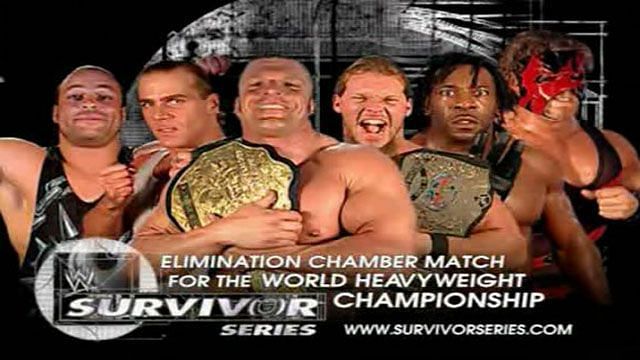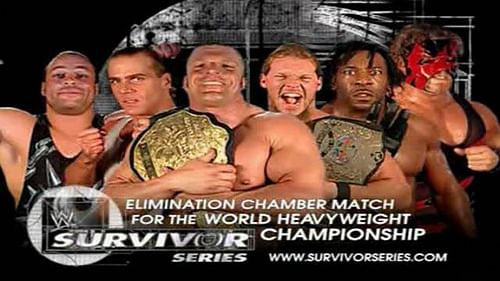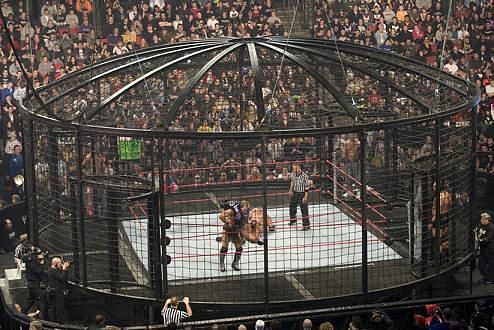
Gimmick Some Lovin': The Elimination Chamber

In each edition of Gimmick Some Lovin', we take a look at one iteration of a gimmick match available on the WWE Network. Some are iconic for their success, others for the extent to which they flopped, and some just... happened.
We defined a "gimmick match" as, in any way, adding a rule/stipulation to or removing a rule from a match, changing the physical environment of a match, changing the conditions which define a "win", or in any way moving past the simple requirement of two men/women/teams whose contest must end via a single pinfall, submission, count out, or disqualification.
To honour its 15th anniversary this past weekend, we look at the November 17, 2002, debut of the Elimination Chamber at that year's Survivor Series event. A slideshow-based article on a sports website is the contemporary 15th-anniversary gift, right?
How does this work, again?
Some gimmick matches are enhanced by their simplicity: the No Disqualification Match, for instance, simply removes a rule to allow two competitors to attack at will, or a ladder match (and its unloved stepchild the pole match) just asks combatants to climb for a (usually match-winning) prize, although those have had their fair share of unnecessary complicating rules.

Others, however, require an often absurd amount of rules, to varying success; the Royal Rumble match, the War Games match, and nearly any match where WCW built something in the 1990s (more on that later this week) are all known for pre-match promos or video packages explaining a complicated set of stipulations designed to enhance drama, but which often just confuse viewers at home and in the arena.
The Elimination Chamber belongs to the latter category of matches; when it debuted in 2002, it was WWE's first attempt to incorporate a wholly new structure since the birth of the Hell in a Cell cage and contest in October 1997.

Originally introduced to settle the dust in a crowded group of challengers to a particular championship, the Chamber has since fallen victim to having a pay-per-view event named after it, taking away some of what made previous contests special.